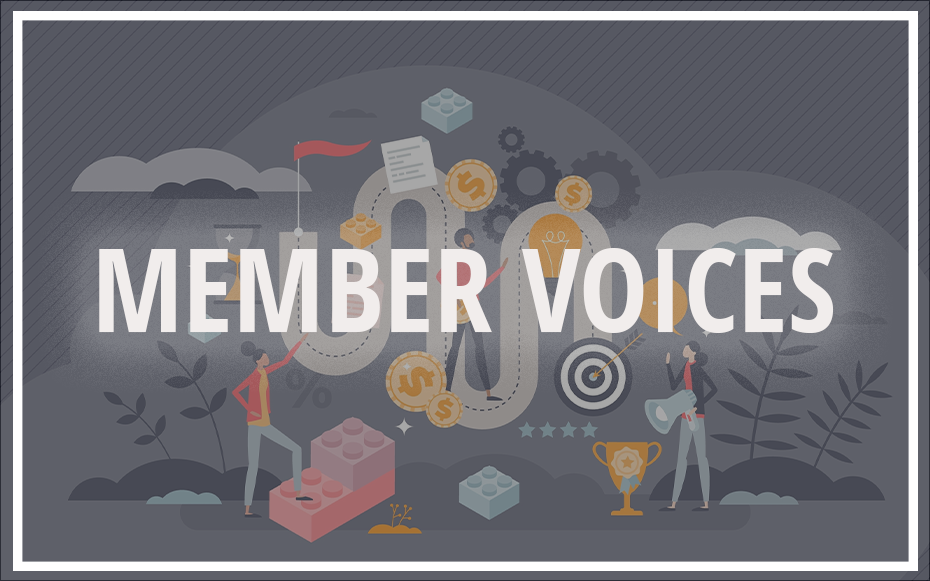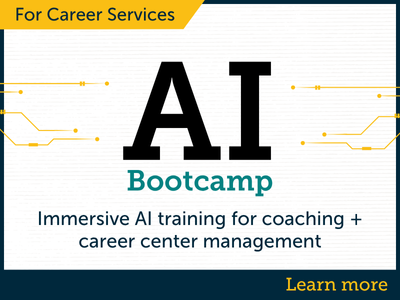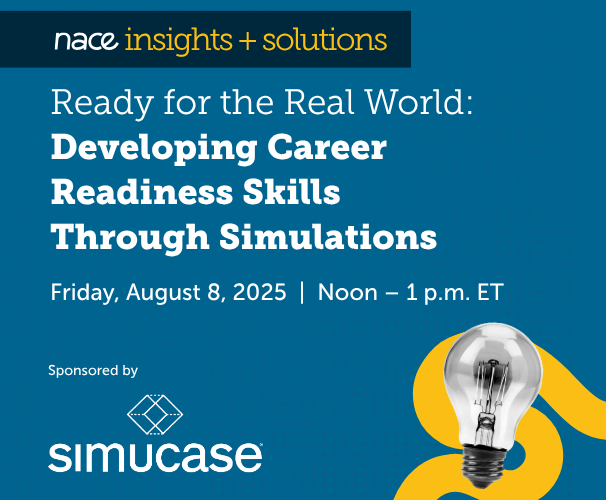Career development resources are abundant on college campuses, both in print and online; yet engaging students with these valuable materials remains a challenge. At Boston University's College of Communication, our career guides offer comprehensive insights into essential professional skills – from networking and resume writing to crafting elevator pitches and navigating job and internship searches. However, despite all the information available on our website, we consistently struggled to capture students’ attention. This led to our career services team asking a critical question: Why aren't students taking full advantage of these career development tools?
One solution was developed during Rachel’s tenure on the College of Communication's career coaching team, when she developed and implemented an innovative gamification strategy that significantly improved student engagement with coaching resources by transforming our traditional career guides into bite-sized, quiz-based games. Through this change, students can now access these resources by scanning a QR code while waiting for their in-person career advising appointments.
This strategic approach redesigned how College of Communication students absorb and retain professional development knowledge, making the learning process both more engaging and memorable.
Implementation
This solution leveraged artificial intelligence (AI), specifically Claude.ai, to transform our existing career guides into interactive quiz games. The process proved straightforward and efficient, requiring very little technical expertise. Using our established career guides as the foundation, we crafted specific prompts for Claude.ai to generate engaging, pedagogically sound questions with clear explanations.
The key to our success lay in designing precise prompts, such as the following:
Create an interactive learning game based on the attached “Networking Guide.” For each question: (1) provide immediate feedback indicating whether the response is correct or incorrect, (2) include a detailed explanation referencing specific content from the original guide, (3) follow established item-writing best practices for multiple choice questions, and (4) specify button colors to differentiate correct, incorrect, and unselected answer options.
Each question included multiple choice options, immediate feedback on answers, detailed explanations connecting back to the original guide, and visual engagement through color-coded buttons for correct, incorrect, and unselected answers.
Results and Benefits
The impact of our gamified resources was immediate and measurable: Our tracking showed significant increases in student engagement across all guides. The resume guide had 38 student interactions and the networking guide attracted 32. Notably, the cover letter guide, typically one of our least-accessed resources, saw 16 student interactions within the first two weeks.
The transformation of our career guides yielded multiple advantages that extended beyond just increased engagement. Students received instant explanations for correct and incorrect answers, helping reinforce key concepts through active learning. The game format made career development more approachable and less overwhelming, while the self-paced nature of the games improved accessibility for all students. Perhaps most importantly, we now had clear metrics showing how students were interacting with the content.
Lesson learned and moving forward
The key lesson from this project transcends mere content creation – it's about reimagining how we deliver career guidance to students. The positive results we’ve seen from converting traditional resources into an interactive, game-like environment have proven that when we adapt our delivery methods to match students' preferences for interactive learning, we can successfully bridge the gap between valuable educational resources and meaningful student engagement.
Building on this promising foundation, we're now exploring ways to expand our gamified approach across our entire career development curriculum. We envision creating sophisticated scenarios that simulate challenging workplace situations, allowing students to practice critical professional skills in a safe environment. Our roadmap includes developing interactive modules for complex topics like salary negotiation, workplace microaggression response strategies, and professional email etiquette – all designed to provide students with practical, hands-on experience before they enter the professional world.







